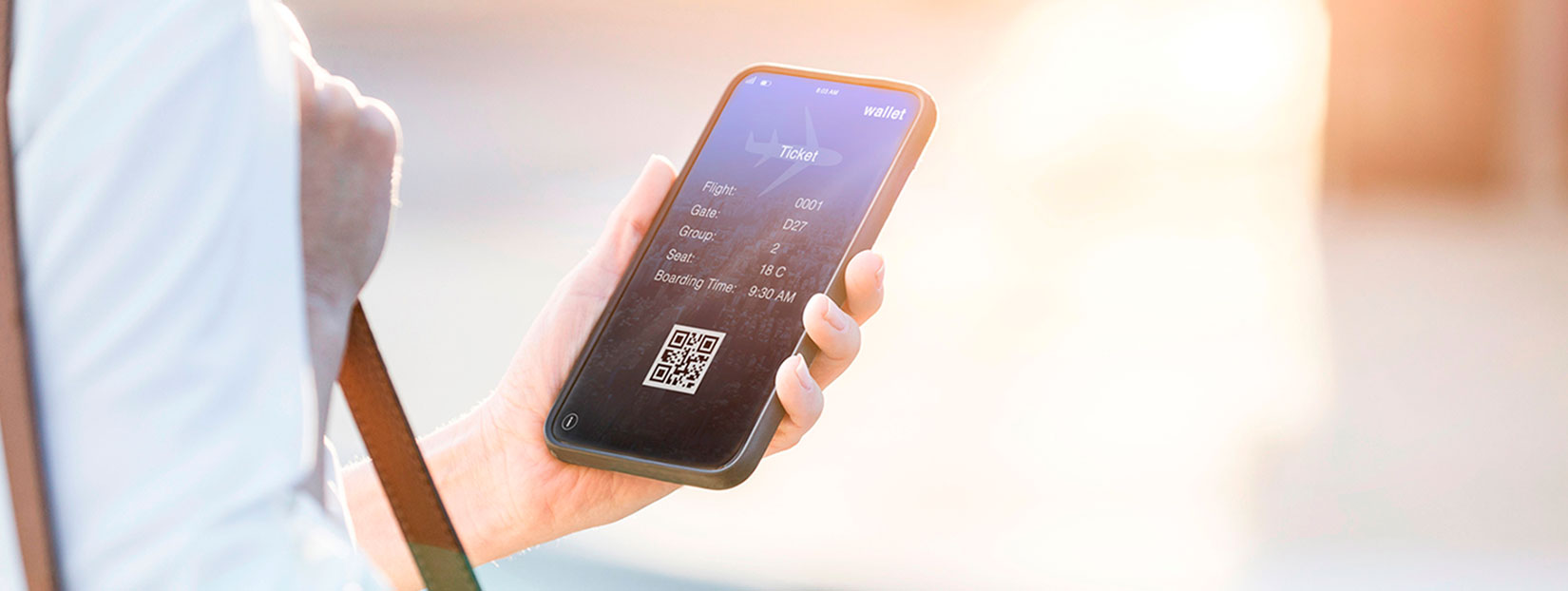Author: Janette Hiscock, CEO, Global Solutions, Europe
The past decade has seen travellers become increasingly reliant on digital technology when it comes to booking, planning, and experiencing travel whether it is for business or leisure. Within today’s world, digital tools will no longer be an accessory, but an essential for all travellers, from the moment they search for a destination until the end of their trip. This trend will likely be fast-forwarded by the emergence of COVID-19 and how we manage travel through a global pandemic.
 Within this climate, it is important to consider the balance between digitalisation keeping us safe and an individual’s right to privacy. Janette Hiscock, CEO of Global Solutions Europe, UnitedHealthcare Global, considers the importance of embracing technologies that serve to protect our health and wellbeing, whilst still protecting the right to privacy and limiting access to personal data. The future of the digital traveller is something that we must all come to understand, as digitalisation shows no signs of slowing down.
Within this climate, it is important to consider the balance between digitalisation keeping us safe and an individual’s right to privacy. Janette Hiscock, CEO of Global Solutions Europe, UnitedHealthcare Global, considers the importance of embracing technologies that serve to protect our health and wellbeing, whilst still protecting the right to privacy and limiting access to personal data. The future of the digital traveller is something that we must all come to understand, as digitalisation shows no signs of slowing down.
The World Today
It is without question that COVID-19 has accelerated the importance of digital platforms. Recent data suggests that we have jumped five years forward in digital implementation in the space of around just eight weeks.1 From track and trace apps to digital health passports, it’s difficult to imagine a time before such adoption of digitalisation. As we look to ongoing management, these emerging technologies are enabling people to resume their travels without compromising their safety. Installing confidence back into travelling is something that we are all working towards and the vast number of digital tools at our disposal is helping to facilitate this.
With a more geographic lens, we’re seeing varying approaches to digital tools being used region-by-region. In countries such as Belgium for example, data is being used by the government to determine whether travel or quarantine restrictions have been breached. Steps like this may be necessary to curb the sheer infection rates we have been experiencing over the past months and to avoid a total shutdown of travel, as witnessed earlier on in the year. However, it is interesting to consider whether the efficiency of such apps outweighs the concerns around data protection. Although measures need to be taken, these must be applied with caution whilst the world continues to fight through the COVID-19 pandemic.
Supporting your workforce
The flux of the current landscape is something we are likely to experience for months to come and, within the world of work, employers must continue to adapt, as we navigate our way through such an unusual time. With air bridges, air corridors and travel bubbles capable of changing overnight it is important that employers are able to execute robust and digitally available contingency plans to protect their employees, who may be abroad and face implications, such as quarantining upon their return home.
 Employers should consider implementing risk-based healthcare protocols to protect employees and any visitors upon their return to the office. Whether this is in the form of a temperature check and asking if the individual has experienced any symptoms of COVID-19 since their last visit to the office, screening is one of many simple measures to help prevent the spread of the virus. For those travelling for business it is a good idea to be screened before departure and have in place protocols to manage a traveller who becomes unwell or in contact with COVID-19 while abroad, so that employers can ensure they are doing their part to protect their workforce. Alongside this, employers should remain in contact with their employees abroad and ensure they are familiar with the rules, both existing and new, that may apply upon their return.
Employers should consider implementing risk-based healthcare protocols to protect employees and any visitors upon their return to the office. Whether this is in the form of a temperature check and asking if the individual has experienced any symptoms of COVID-19 since their last visit to the office, screening is one of many simple measures to help prevent the spread of the virus. For those travelling for business it is a good idea to be screened before departure and have in place protocols to manage a traveller who becomes unwell or in contact with COVID-19 while abroad, so that employers can ensure they are doing their part to protect their workforce. Alongside this, employers should remain in contact with their employees abroad and ensure they are familiar with the rules, both existing and new, that may apply upon their return.
Although it is important that employers are digitalising their plans for employees, something they must take into consideration are the concerns over the amount of data that is already stored up on individuals. The shift towards governments and organisations actively tracing where we have travelled treads a fine line in what people are willing to accept and be shared. Of course, there must be caution around those who do not want this information shared and it is essential that, as with all data collection, it stays in the hands of the right people. For individuals to cooperate with track and trace apps there must be a sense of public trust instilled by those in charge.
If we look more widely at employee wellbeing, even before the pandemic travel was a well-known source of stress, and this hasn’t lessened in recent months. It is therefore important that the appropriate measures are implemented to negate this. A recent survey found that 58% of people said that they have actively avoided air travel, with 33% suggesting that they will avoid travel in the future as a continued measure to reduce the risk of catching COVID-19.2 For those where it is necessary to travel for work, it is important they utilise the tools available with them to tackle any stress that may circulate travelling. We recommend that employers implement digital health support that can be accessed across the world in order to support their overseas workforce. Measures like these will ensure that we tread with caution, as we continue to navigate our way through such an unusual time.
The horizon
At this stage, uncertainties remain in what the next steps will be for digital travel and how this transformation will ultimately change the traveller experience. However, as flights resume and social/physical distancing remains a necessary safety protocol, digitalisation can allow travellers to more closely control every stage of their journey. For example, personalisation technology can allow airlines to cater for passengers with particular health concerns, and ensure transit, boarding and in-cabin options are tailored to their particular needs. Not only does this facilitate the return of travelling, but also brings back a desire to travel.
Furthermore, contact reduction technology is something that will help to shape the future of travel. New technologies such as mobile key cards really can help to enhance safety when travelling. By reducing contact points for travellers this will facilitate a safer travel experience for individuals. Additionally, making virtual health points accessible to those who wish to travel can be a simple step in protecting both their health and wellbeing. Measures like these are the first steps in effectively managing the return to travel whilst also looking to a more sustainable way of travelling. As digital travel continues to advance, we can start to bring the concept of travel back to reality and look towards a whole new version of travelling.
Ultimately, for travel to progress and remain part of our lives we need digital solutions that adequately improve the traveller experience in the safest way possible. Although it is vital that we all comply with COVID-19 regulations and prioritise our health and wellbeing, this must be navigated with caution. It is essential that companies and employers remain mindful of those uneasy about data collection and carefully manage what and how data will be used in the future, to benefit all. Although a return to travel is something many of us want to progress, it requires time and consideration to mitigate the spread of the virus, as well as restore confidence in the traveller experience.
To read more articles from UnitedHealthcare Global or to learn more about UnitedHealthcare Global in Europe, visit www.uhcglobal.eu
----------------------------------------------------------------------------------------------------------------------------------------------------------------------
Resources
